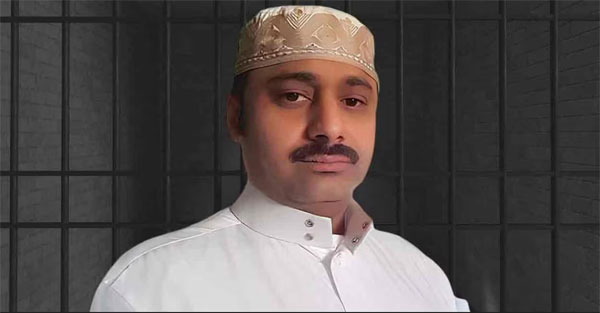Daijiworld Media Network - Riyadh/Kozhikode
Riyadh/Kozhikode, Sep 22: In a significant legal breakthrough, the Supreme Court of Saudi Arabia has rejected an appeal seeking a stricter sentence for Abdul Rahim, a Kozhikode native imprisoned in connection with a 2006 murder case. The decision upholds a lower court ruling and paves the way for Rahim’s release, expected by May next year, according to the Rahim Legal Aid Committee.
Rahim, who hails from Kerala's Kozhikode district, was arrested in November 2006 in connection with the fatal stabbing of Saudi teenager Anas Al Fayiz. In 2012, a Saudi court sentenced him to death. However, that sentence was overturned last year under the Kingdom's private rights law after the victim's family accepted blood money of 15 million Saudi Riyals (approximately Rs 34 crore) and formally pardoned Rahim.

Despite the settlement, Rahim remained in custody under public rights provisions of Saudi law, which deal with offenses considered to harm society as a whole. Over the last year, the case saw 13 separate hearings as courts deliberated on this component of the sentence.
Now, with the Supreme Court’s ruling dismissing the prosecution’s appeal for a harsher penalty, legal experts say the final legal hurdle has been removed.
“The path is now clear for Rahim’s release, and barring any unforeseen delays, he should be freed by May 2026 once the procedural steps are completed,” a member of the Rahim Legal Aid Committee said.
The Committee, which worked closely with Indian and Saudi authorities over the years, expressed gratitude for the diplomatic and legal efforts that helped secure this outcome.
“We are thankful to the Government of India, the Saudi authorities, and every individual who stood by us during this long legal battle,” the Committee added.
Although Rahim’s 20-year sentence is formally set to end in December 2026, the Supreme Court verdict opens the possibility of early release.
This case has drawn wide attention in both India and Saudi Arabia, highlighting the complexities of legal systems where both private and public rights play a role in criminal sentencing.
For Rahim, the verdict marks a turning point in a legal saga that has lasted nearly two decades — and for his supporters, it brings long-awaited hope for closure and justice.